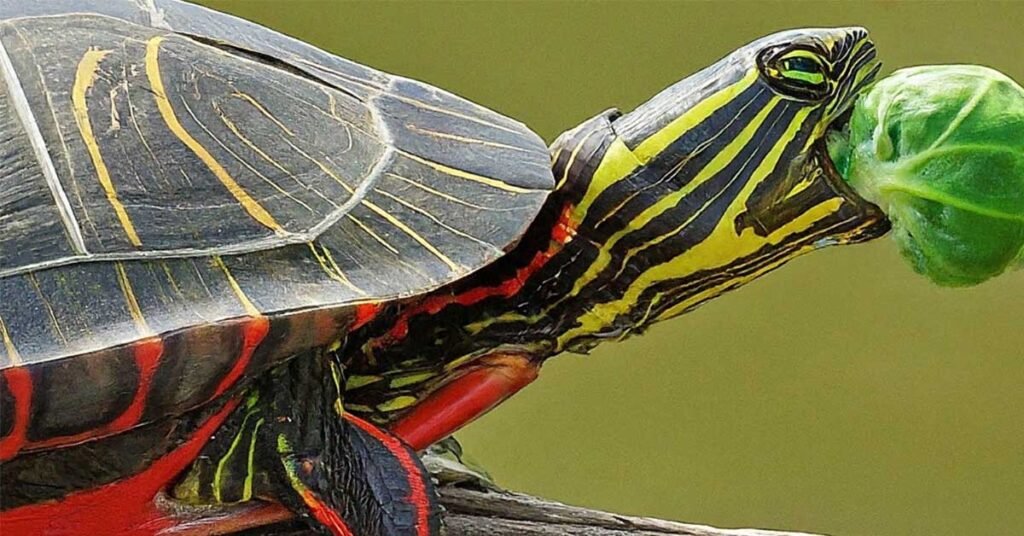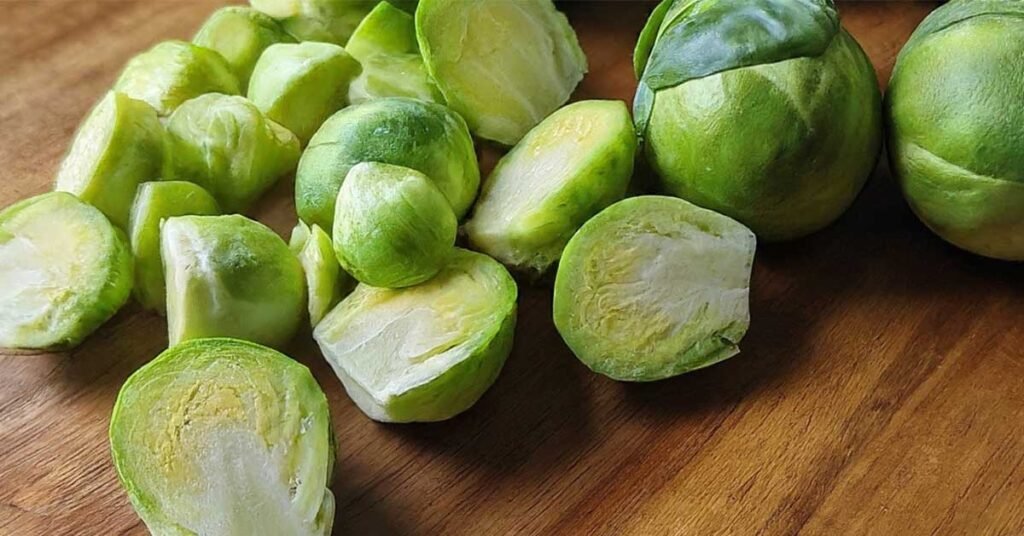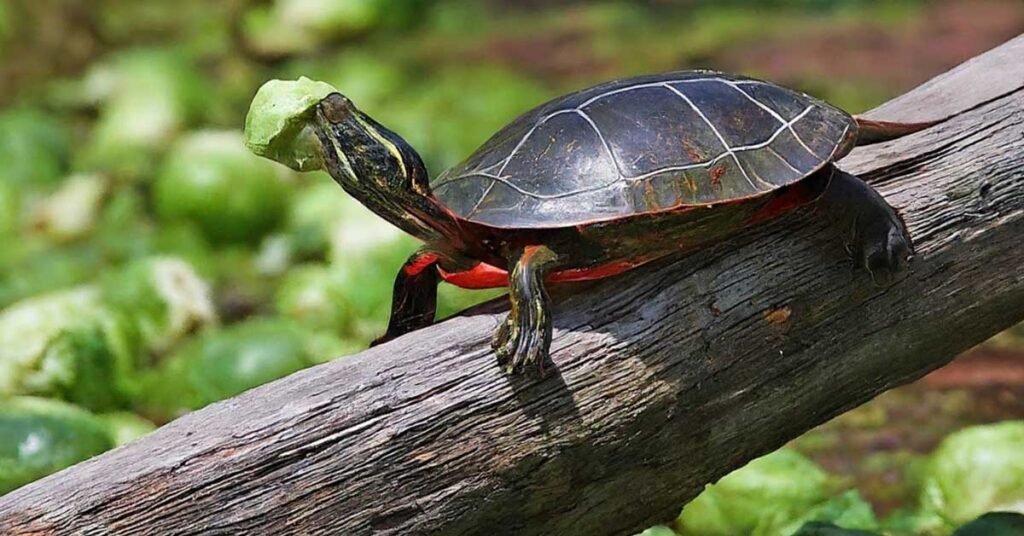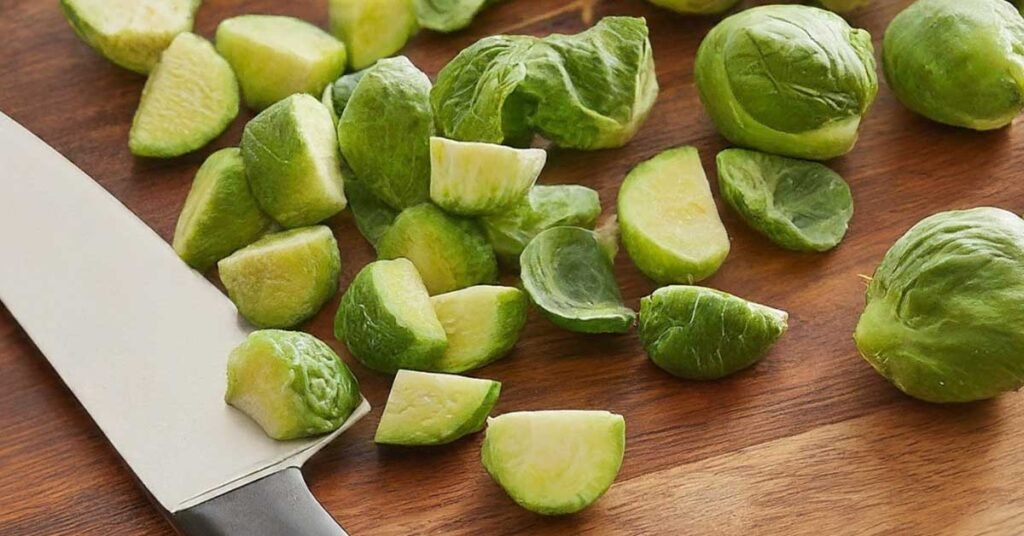As omnivores, turtles can savor anything on a plant or meat-based diet. Adult turtles prefer to eat more plants or leafy green vegetables. Brussels sprouts are lovely, colorful green vegetables that almost look like mini cabbages. If you have this veggie in your hand, as a turtle pet owner, you may be wondering, can turtles eat Brussel Sprouts?
These small, nutrient-packed veggies are remarkable for their potential health benefits. Turtles, known for their varied diets, can enjoy Brussels sprouts as part of their meals. However, moderation is a must, as too many Brussels sprouts could cause digestive issues for turtles.
In this post, we’ll discuss the following question: Can turtles eat Brussels sprouts? If so, how much, and is there any risk?
Can Turtles Eat Brussel Sprouts?

Yes, turtles can consume Brussels sprouts in their plant-based meal. But, like many other meals, this cruciferous vegetable can not be considered a turtle’s main meal. Brussels sprouts are indeed rich in different nutrient sources; too much may cause health issues.
Like cabbage, Brussels sprouts also contain goitrogen, which can be harmful to turtles’ thyroid function. However, this veggie is absolutely safe for your turtle’s diet, when you incorporate them in the right amount.
Nutrition Table of Brussel Sprout

Here’s a nutrition table based on the provided data for one cup of boiled Brussels sprouts (156g):
| Nutrient | Amount per cup (156g) |
| Calories | 56 |
| Fat | 0.8g |
| Sodium | 16mg |
| Carbohydrates | 11g |
| Fiber | 4.1g |
| Sugars | 2.7g |
| Protein | 4g |
| Vitamin K | 219mcg |
| Vitamin C | 97mg |
| Omega 3 Fatty Acid | 135mg (in 78 gm serving) |
What are the Health Benefits of Brussels Sprouts

Brussels sprouts can provide several health benefits to your turtles if served in balanced quantity. Here’s how these little green balls can boost your shelled friend:
Vitamins
Brussels sprouts are tiny green veggies filled with vitamins, especially Vitamin K and vitamin C. Vitamin K is essential for blood clotting and bone strength.
Vitamin C in Brussels sprouts is suitable for your turtle’s immune system. It helps them fight infections and stay healthy.
Brussels sprouts have B vitamins, like folate, thiamin, and B6. These B vitamins act like tiny helpers in your turtle’s body and assist with metabolism and keeping their energy levels up.
Antioxidant-Rich
Just like us, Brussels sprouts are packed with antioxidants. These act like tiny warriors fighting off bad guys (free radicals) in your turtle’s body that can cause health problems.
Brussels sprouts boast two key antioxidant types: carotenoids, which shield cells from damage, and polyphenols. They offer double protection with their antioxidant and anti-inflammatory properties.
Mineral Mix
Brussels sprouts offer a multi-mineral boost for your turtle. Manganese in this veggie helps form strong connective tissue, keeping your turtle’s body well-structured.
While not a top source, Brussels sprouts still contribute calcium to healthy bones.
Phosphorus aids in proper fluid balance and nerve transmission, keeping your turtle functioning smoothly.
Digestive Boost
The fiber in Brussels sprouts is like a natural cleaner. It keeps your turtle’s digestive system moving smoothly and prevents constipation.
Hydration Source
Since staying hydrated is essential for turtles, Brussels sprouts have a high water content. It’s like a refreshing drink alongside their regular water intake. For the summer season or any warm weather, this vegetable diet can help them store water in their system.
Low-Calorie Option
Brussels sprouts are a low-calorie option that still provides essential nutrients. They can help your turtles maintain a healthy weight without sacrificing essential vitamins and minerals.
If you check out the nutrition table, you will see Brussels sprouts contain several more nutrients. Some nutrients are present in smaller amounts or are not significant. Here, we have pointed out the most helpful nutrition for turtles’ health.
Potential Issues with Feeding Brussels Sprouts to Turtles
The clear fact is Brussels sprout is generally a safe diet for your turtle, but only if you serve it in moderate amounts. There are a few things to consider before filling their bowl with this veggie regularly. Here’s why Brussels sprouts might not be the perfect everyday food for your turtle:
Thyroid Issue: Brussels sprouts contain goitrogens which we mentioned above. It can mess with your turtle’s thyroid gland (the little guy that controls their energy levels). While a tiny taste won’t harm them, too many Brussels sprouts could disrupt their internal balance.
Tummy Troubles: Some turtles might have a hard time digesting Brussels sprouts, especially if they go overboard on this new treat. It can lead to gas and bloating, making them uncomfortable.
Calcium-Phosphorus Ratio: The calcium-phosphorus ratio is not ideal in Brussels Sprout. It has some calcium, which is great for strong bones. But, they also have a good amount of phosphorus. If your turtle overeats phosphorus compared to calcium, it can lead to a condition called Metabolic Bone Disease, making their bones weak and brittle.
Pesticide Concern: Raw Brussels sprouts might hide unwanted guests – pesticides and other contaminants. Always wash them thoroughly before offering them to your turtle. Organic options can be a good choice too, minimizing the risk of any unwelcome surprises.
The Oxalate Obstacle Course: Brussels sprouts are not exceptionally high in oxalates compared to some other vegetables. However, they do contain oxalates, which can be a concern if turtles consume large amounts regularly. It can bind with calcium in your turtle’s body and potentially form crystals that can cause health problems, such as the formation of tiny kidney stones.
How to Prepare Brussel Sprout for Your Turtle?

Here are some easy-to-follow steps for preparing Brussels sprouts for your turtle:
- Clean the Brussels sprouts thoroughly under running water to get rid of dirt, pesticides, and other stuff.
- Remove any wilted or damaged leaves and cut the sprouts into smaller pieces to make them easier for your turtle to eat.
- It’s best to steam or boil Brussels sprouts until tender. It softens the sprouts, making them easier for your turtle to chew and digest.
- If you prefer to feed them raw, you can still do so, but make sure to loosen the tightly bunched leaves to help your turtle digest them more easily.
- If your turtle doesn’t eat all the Brussels sprouts within a few hours, remove any uneaten portions to prevent them from spoiling in the enclosure.
FAQs
Can box turtles eat Brussels Sprouts?
Yes, box turtles can safely savor Brussels sprouts. This vegetable offers some essential nutrients turtles need. Serve this plant diet once or sometimes twice a week to balance the amount.
Can turtles eat Brussels sprouts?
Turtles are absolutely safe to eat Brussels sprouts, but there is a condition. You just can not include this vegetable as a staple to your turtle’s diet. Provide this green in moderate amounts, too much can cause turtles health risk.
Can water turtles eat Brussels sprouts?
Yes, water turtles can eat Brussels sprouts without posing any significant risk. However, turtle owners should be cautious about including this veggie as a main meal.
Read More: Can Turtles Eat Spiders?
Conclusion
We hope now that you know the answer to the question, “Can turtles eat Brussels sprouts? While Brussels sprouts offer some health benefits for your turtle, think of them as a fun occasional treat, not a staple food.
Offer them in moderation alongside other healthy veggies, following your vet’s dietary advice. This way, your shelled friend can enjoy these tiny green powerhouses without any tummy troubles.
